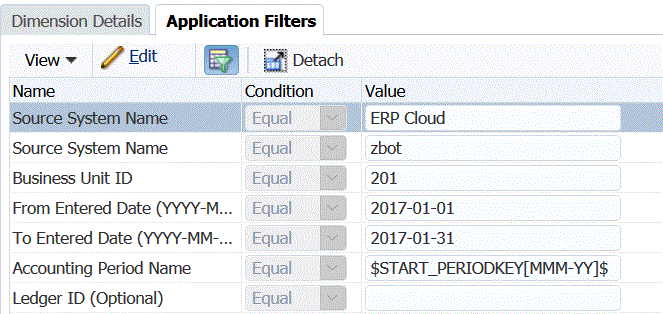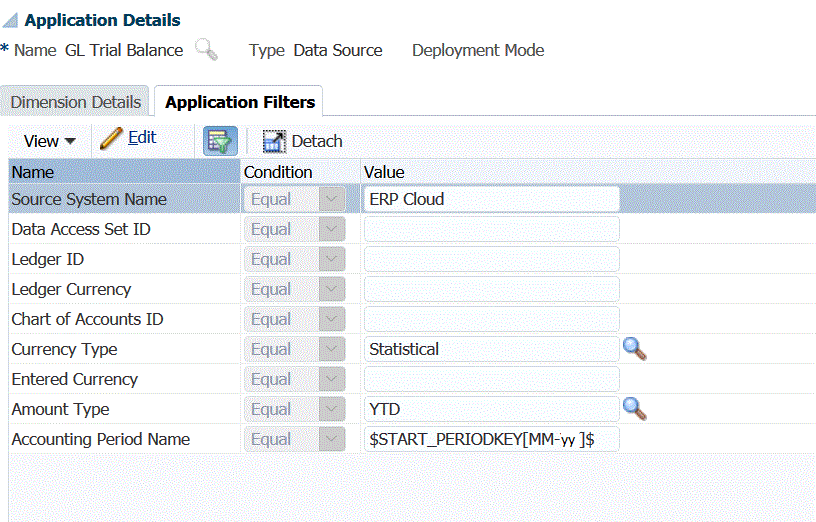Selecting Period Report Parameters from the Oracle ERP Cloud
When importing data from the Oracle ERP Cloud, you can select the period from which to pull the data by specifying a date (using a date specific format) in the $START_PERIODKEY$ and $END_PERIODKEY$ notations.
Valid values for date format include:
-
dd: Day of the Month, which uses the day of year instead of the day of the month
- MM or MMM: Month
- yy or yyyy: Year
In the following example, the From Entered Date and To Entered Data are specified in the format: (yyyy-MM-dd). To import data from January 1, 2017 to January 31, 2017, you enter 2017-01-01 as the report parameter in the From Entered Date field and 2017-01-31 as the report parameter in the To Entered Data field.

If you want to specify a single-period load, select the $START_PERIODKEY$ notation to indicate the period key from which the data load rule is run. The data is imported for the period specified in the $START_PERIODKEY$ notation. Source period mappings are not needed for single-period loads.
In the following example, you can change the "ACCOUNTING PERIOD NAME" by selecting the actual period using the $START_PERIODKEY[MM-yy]$ format.

When you a run multi-period load, data is imported for the range and must be specified in the START_PERIODKEY and END_PERIODKEY parameter list. In order for the system to load the data into the right periods, source period mappings must exactly match the Year and Period columns in the data extract.
Multi-period imports are available if the report accepts a period as a range. If the report accepts only the period name (START_PERIODKEY parameter), no multi-period imports are available.